The Ultimate Guide for Blogging and B2B Lead Generation

Blogging is a powerful, nigh indispensable technique for lead generation in the modern internet. People don't just find your landing pages, they find your blog posts, and through that content, they find your brand. Only then can you build up a relationship, a reputation, and finally, a conversion.
I've written a lot over the last few years about how to properly manage a blog, grow your audience, and convert your leads, and it's time to bring all of that together.
Blogging is a massive topic with a lot of different angles of attack, so this post is more of a guide of guides, a table of contents for further reading on a wide range of subjects.
So, let's get started!
 30 Second Summary
30 Second Summary
Blogging proves important for lead generation online, requiring a thorough strategy and setting up realistic expectations. Initial success may require time, diverse content lengths, and exploiting the right marketing channels. Determining the blog's purpose, audience targeting, consistency in posting, and mindful avoidance of common errors enhance effectiveness. Setting a strong foundation involves navigating technical elements, defining brand style, and producing high-quality content. The blog requires regular optimization, performing data-driven strategies. Understanding and rectifying problems and potential outsourcing offer more options for success.
Setting Expectations
When you're embarking on a journey of blogging for your business, you'll have a lot of work ahead of you. Some of it is the initial setup, and some of it is about managing expectations. I've written a lot about this topic since it's so important to many businesses who are just starting out with blogging.
First and foremost, you want to set your expectations to a realistic level. To that end, you should learn about how long it takes for blogging to start getting traffic. Hint: it's going to take longer than you hope, but it'll work faster than you might think. Blogging is a long-term strategy, not something you set up for immediate returns. This is, incidentally, why it works well in conjunction with other marketing like PPC, rather than as a stand-alone strategy.

Are you skeptical of whether or not blogging can even work? Well, I'm obviously going to tell you that it works, because I based my business around it and I have evidence that it works, but you might not have that kind of evidence on hand. Here, I'll try to convince you. I'm biased, but that doesn't mean I'm wrong.
Another expectation you should set is one for the length of your content. How long is the average blog post? How long should you aim to make yours? Some bloggers are wildly successful with under-1k-words posts, while others never seem to publish anything less than 5K. I did a study late last year that can shed some light on the topic.
How does blogging compare to other marketing channels? After all, you only have so much money and time to go around. If blogging is fine but another channel is better, you might want to spend your efforts on that other channel before worrying about blogging. Remember, the Pareto Principle states that 80% of your returns come from 20% of your effort, so finding the best-return effort is key. Anyway, here's a comparison of blogging and PPC marketing.
Probably one of the most important elements of a blog, above all else, is having a blogging strategy. You can't just write a bunch of content and expect it to work, you need your blog to have a purpose. Every post, every landing page, every design element, it's all focused on getting your users to do something. The end goal is, of course, a conversion, but what is the process? How do you get there? That's why you need to develop a blogging strategy: to find out. If you need something more focused specifically on the lead generation process, I've got you covered there too.
It's also worthwhile to take a moment to recognize that B2B and B2C blogging is different, and require different kinds of techniques. Most of my work is B2B, but the work I do for clients is often B2C, so I've familiarized myself with both and I've developed the ability to code-switch between them. If you're running a B2B blog, here are my tips on how to write those posts more effectively.

So, how often should you be writing your blog posts? Some people say consistency is the key, and to pick a schedule and stick with it. Some say you should blog once a week, some say 2-3 times per week, and some say once a day. There are counterexamples everywhere; some successful blogs post once a month and do fine. Others post every day or multiple times per day and rock it. I'm in the first camp; it doesn't really matter, so long as you're consistent.
Oh, and before I forget: there are a lot of common mistakes people make, especially when they're starting up a business and B2B blog for the first time. I've covered those too; read them and try to avoid them, or at least learn how to fix them if you make them.
Building a Strong Foundation
More than just managing expectations, you need to make sure your blog is strong from a technical level. I generally recommend WordPress, though you can use other blogging platforms if you like. Just know that most of my advice will be tailored to WordPress users because it's what I use and it's the most popular CMS out there.
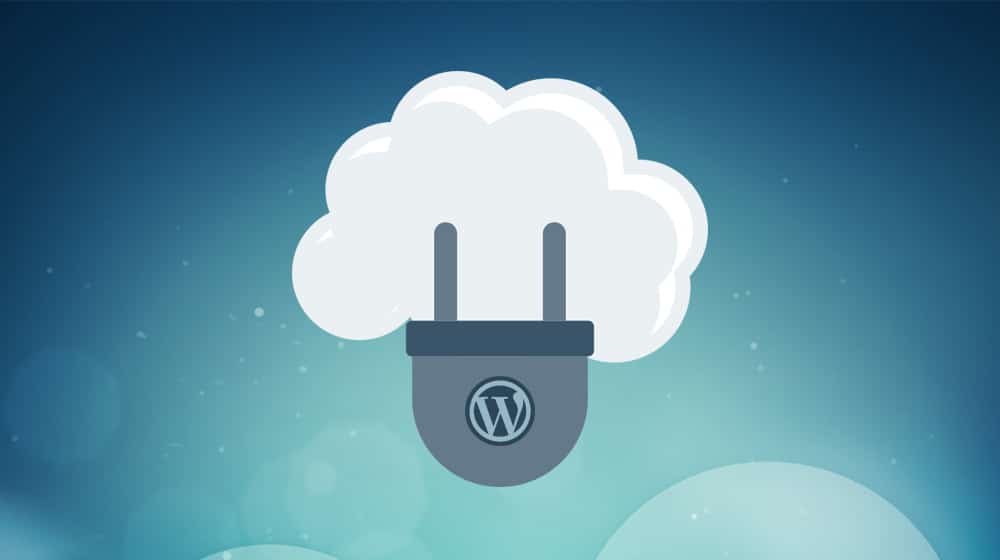
WordPress has a lot of features you can use to optimize and improve how it works. Plugins can do a ton for you, so a lot of what I recommend here is going to be plugin-based. Some of it is critical, like SEO plugins, and others are more optional. Here's a list of WordPress plugins I highly recommend.
One such optional plugin is the table of contents. I use them because I like how they let you organize posts and allow users to jump directly to a section they want to read. It's great for usability, and they don't hit your site speed much at all, so they're ideal. Here's what I recommend.
Once you have your blog up and running, one thing you'll want to do is learn how to write and use calls to action. A call to action is the "now what" to each blog post. You got people to your site to read your content; now what? What do you direct them to do? If you use one of these "call to action" plugins, you'll be able to direct them wherever you like, whether it's related posts, landing pages, product pages, or a conversion immediately. Here's how to use them.
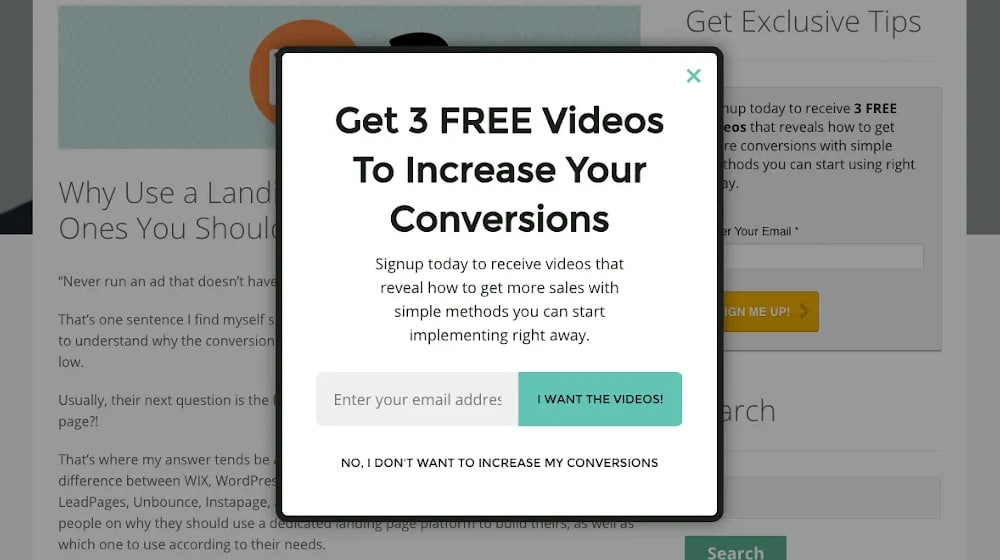
Another feature I recommend using is built into WordPress, though you may need to configure them. It's breadcrumbs, an element of navigation that helps with usability and navigation. You know them; it's the "home > blog > category > post" chain at the top of my posts. You see them everywhere, including at the top of this post, and you should implement them on your business blog as well.
We create blog content that converts - not just for ourselves, but for our clients, too.
We pick blog topics like hedge funds pick stocks. Then, we create articles that are 10x better to earn the top spot.
Content marketing has two ingredients - content and marketing. We've earned our black belts in both.
When it comes to the content itself, you need to make sure everything lives up to a minimum quality level, but you also want to make a few pieces of content that truly stand out. These pieces of content are huge, evergreen, insightful, and extremely useful. They're pillar posts, and here's how to write them.
When writing posts, you need to establish a brand style. You can use a specific style guide, like AP or MLA, as a starting point, but I generally don't recommend relying too heavily on a regimented style like that. You can read my breakdown here.
In fact, let's talk about writing high-quality content. A lot goes into a great blog post, and there's probably more to it than you realize if you're not a marketer or blogger already. When you're launching a new blog, figuring out how to put together blog posts is at the forefront of your mind. I might have some unorthodox advice in my guide, but it's a good place to start when you're a beginner. You can always develop your own style and techniques later.
Oh, and before you publish anything, always make sure to proofread.
Optimizing a Blog
Once your blog is up and running, and you have the basics down, it's time to optimize. You didn't think you could just sit on it and let it bring in new customers, did you? In fact, there's a ton you can do – and should be doing – every day to keep optimizing your blog. I covered a bunch of different ways to increase your blog post ROI over here.
After all, Google is constantly changing their algorithm the SEO world is in constant flux, and even the whims of your audience can change the way you should be managing your content.
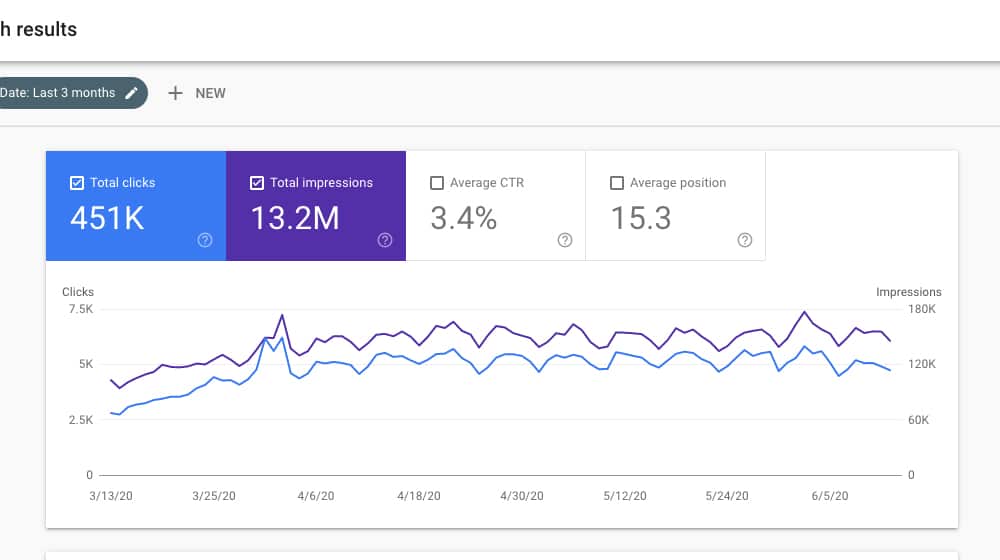
All optimization comes with a need to have data to guide your decisions. In blogging, alongside the usual Google Analytics data, you'll want to check other metrics. One of the best is provided by Moz and is their Domain Authority and Page Authority metric pair. You can read about those here.
How can you tell what your blog is good at? What about where it's falling short? Data, my friends, is the key. Use this guide to determine how your blog is working and how well it's working, where it's falling short, and what you can do to make it better across the board.
Optimization is always going to be an incremental thing. It takes time to develop a blog, to identify the pressures unique to your niche and situation, and adjust your strategy to capitalize on openings and opportunities. Since it's so unique to the individual business, I often prefer to work with them directly than try to give generic advice that may or may not work.
Dealing with Problems
Problems happen in blogging. Sometimes you make mistakes and lead to your site getting penalized. Sometimes malicious actors act against you. Dealing with mistakes is part of the job, and it's not usually that difficult, but you have to learn to recognize mistakes and fix them when they happen, whether it's something you did or some policy of Google's you violated.
Speaking of Google, sometimes you'll run into issues where your blog posts aren't showing up. There are a lot of different reasons for this, and a bunch of possible problems. It can be difficult to diagnose, so I wrote a guide to help you. Hopefully, you shouldn't need it, but if you do, there you go.
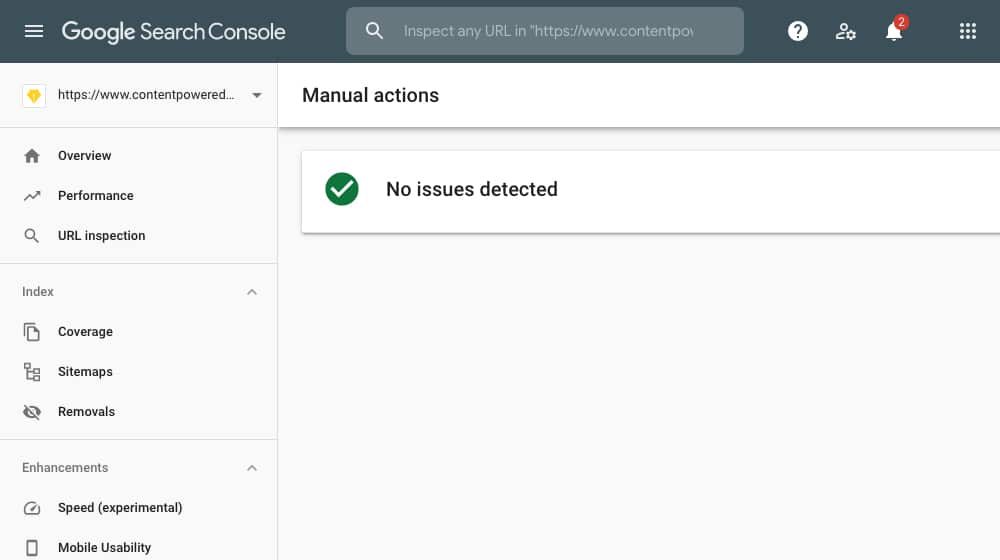
If you want to make sure your site is in good standing – that is, if you want to look over your site and see if you have any issues you never noticed – there's a lot you can check. I put together a guide to help you with that too. Here's how you can determine if a site – not just yours – is in good standing with Google.
Some people don't feel like they should have to work for their blogging efforts and turn to theft to do it for them. If your blog posts are being stolen, you can deal with the problem, but you need to go about it the right way.
Outsourcing Your Blog
Now, I know blogging is a lot of work, that's why I do it for other people. It's no wonder that many businesses turn to outsourcing platforms to do the work for them. I wouldn't blame you if you took one look at all of the work that goes into blogging and decided you wanted to pay someone else to do it for you too. With that in mind, you can read more about how much blog management services cost.
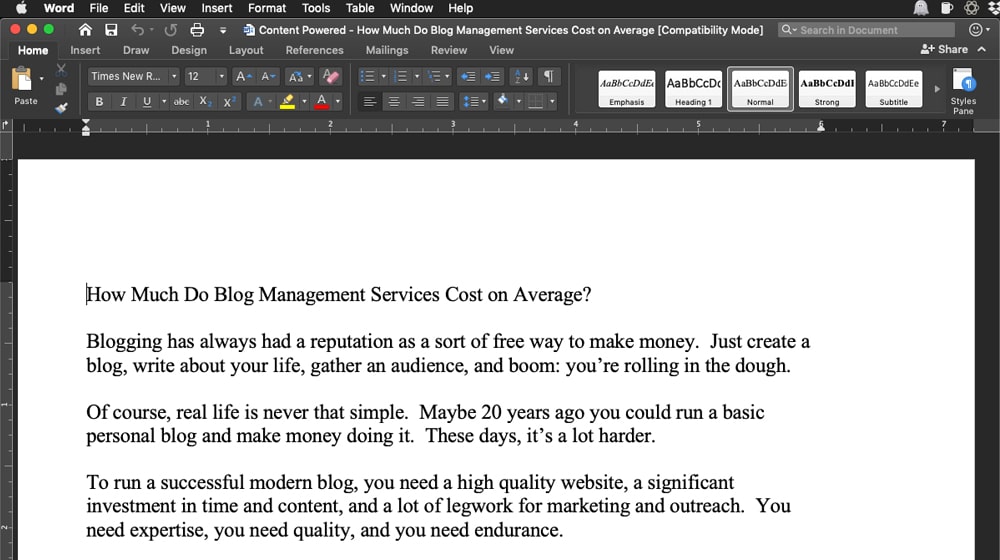
If you don't want to go with a full blog manager, that's fine too. Plenty of people manage their blogs themselves and hire a writer or two to do the heavy lifting. It's common enough that I compiled a bunch of tips on how to do it. You can also hire writers through content mills. It's less work, but you might end up with poor quality content. There are pros and cons, which I went over here.
Now, I know this post has been packed full of posts that we've written in the past on most of these subjects. If you want to hear it from other people, that's fine too; I've even compiled tips from other experts. Why not give them a read, and see if they agree?
Now, let's go over to you:
Do you have any specific questions or topics you'd like me to cover? I'm always open to suggestions, so feel free to leave me requests in the comments!



 30 Second Summary
30 Second Summary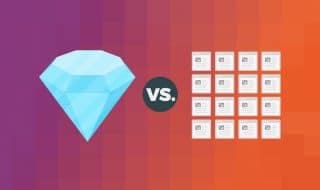


January 21, 2021 at 4:10 am
Hey James. I am wondering if I need to put up a blog on my own site or will a LinkedIn blog suffice?
January 22, 2021 at 10:19 pm
Hi Alton!
As far as using LinkedIn instead of creating a blog, the way I see it, with LinkedIn, you’re giving them the extra traffic and benefits of writing an article in the first place.
You also lose most of the control you have over your content.
I think posting your content to your own blog is the best strategy, as well as posting excerpts to your LinkedIn blog.
You only have to post 1/3rd of the article on LinkedIn. Then, at the bottom of your LinkedIn article, you have a link to read the rest of the post on your blog.
Invest the time and resources into a blog on your own site, it’s well worth it 🙂
We have more reading on why you should add a blog to your site here: https://www.contentpowered.com/why-blog/
November 10, 2021 at 3:32 pm
James,
I read your article, very helpful. Please tell me how to find blog ideas. I would like to see some to get a feeling for how they are written.
Regards,
Ralph Moore
November 10, 2021 at 9:28 pm
Hey Ralph!
I wrote a few blog posts on how to find blog post ideas, I hope they are of some help to you!
https://www.contentpowered.com/blog/write-first-blog-post/
https://www.contentpowered.com/blog/find-pain-points-blog/
June 05, 2024 at 9:38 pm
Comprehensive guide on blogging for B2B leads! Which of these techniques do you find most impactful?
June 27, 2024 at 12:03 pm
Thanks Al!
Topic selection matters most than just about anything, next to the quality of your content itself.
I wrote a good post on this here: https://www.contentpowered.com/blog/blog-topic-ideas-tools/